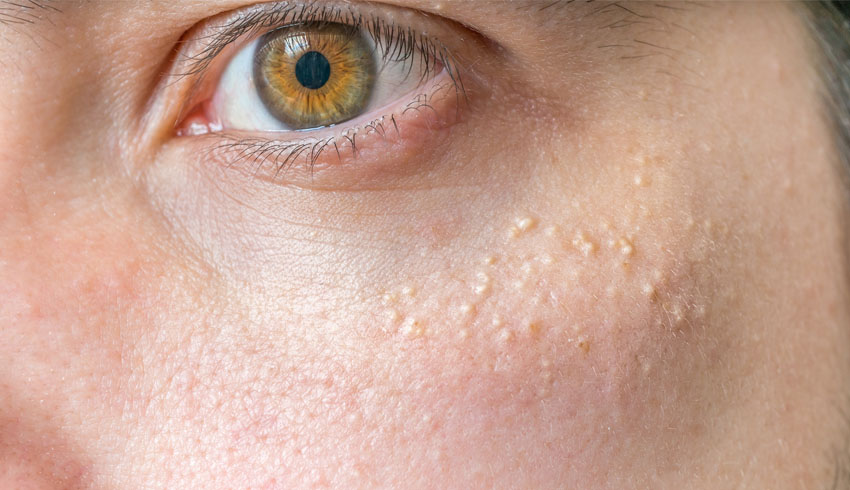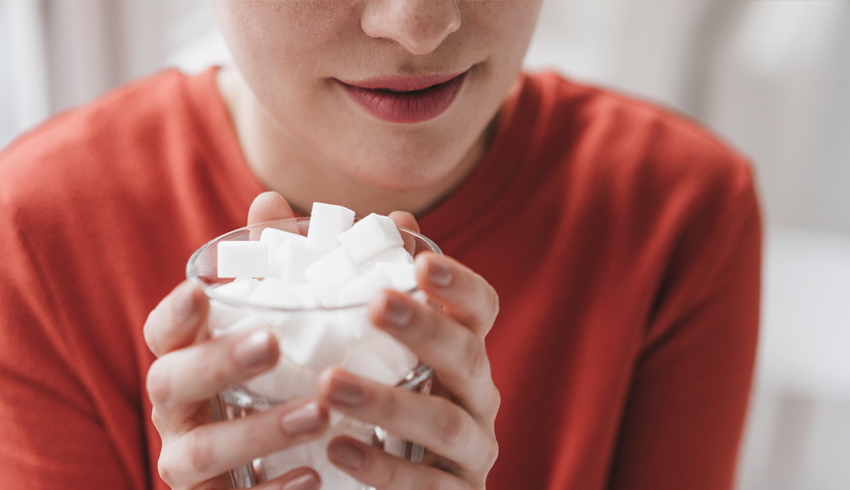
Do you have a sugary donut in your hand? Here’s some news that will make you put down that pastry and walk away: Sugar ages you. Although there are lots of factors that ruin your skin, sugar is probably one of the worst offenders for outright aging your face and body. Not only should you avoid sugar for dietary reasons (US health guidelines recommend you cut way back), you now have the added incentive of protecting your looks from the aging ravages of sugar. Here’s a closer look at how sugar could be aging your face.
Key Takeaways:
- Glycation Process: Sugar in your bloodstream attaches to proteins, creating harmful molecules called advanced glycation end products (AGEs), which damage collagen and elastin, essential for maintaining youthful skin.
- Visible Skin Damage: The effects of sugar on the skin manifest as wrinkles, sagging, and a loss of facial volume, particularly noticeable in areas like the jowls and cheeks.
- Preventive Measures: To combat skin aging from sugar, it's recommended to reduce sugar intake, increase hydration and supplement your diet with vitamins that inhibit AGE formation.
The Effects of Sugar on Your Skin
Sugar damages your skin through a natural process called glycation. The sugar in your bloodstream attaches to proteins and produces harmful free radicals called advanced glycation end products (AGEs). As AGEs accumulate (the more sugar you eat, the more they develop), they damage the proteins around them.
1. Damages Collagen & Elastin
The proteins most vulnerable to damage are those that serve as the building blocks for your skin: Collagen and elastin. These proteins keep skin firm and elastic and are responsible for the plump and bouncy characteristics of a healthy and youthful complexion. AGEs make your collagen and elastin stiff, dry and brittle, zapping them of strength and spring. The effects are seen on your complexion in the form of fine lines, sagging and wrinkles.
2. Affects the Type of Collagen You Have
A high-sugar diet also affects the type of collagen you have. Your skin contains three primary types of collagen (aptly named Type I, II and III). The stability and resilience of collagen build with each stage: Type I is the weakest and Type III the strongest. Glycation degrades Type III collagen into Type I, thereby diminishing your skin’s structural strength and stability.
3. Deactivates Natural Antioxidant Enzymes
In addition to damaging your skin’s essential proteins, AGEs deactivate your body’s natural antioxidant enzymes. Without protection from antioxidants, your skin is more vulnerable to the free radical damage caused by environmental assailants like pollution, blue light and UV rays. Left to roam (and bind to your skin’s structural proteins), free radicals trigger oxidative stress that contributes to premature aging of your skin.
Signs That Sugar Is Aging Your Skin
According to the British Journal of Dermatology, the visible effects of glycation tend to emerge for women around age 35. By this time, the accumulation of oxidative damage, hormonal changes and AGE development compound. Your skin, unable to counteract the oxidative damage done with sufficient collagen and elastin synthesis, begins to show wear and tear. Here are the tell-tale signs on your face that sugar is the culprit aging your skin:
- The surface of your skin looks hard and shiny.
- Deep, crosshatch lines appear along your upper lip.
- Discoloration and hyperpigmentation mark your skin.
- Deep crevices appear, especially around the laugh line area.
- The skin around your jowl area is sagging.
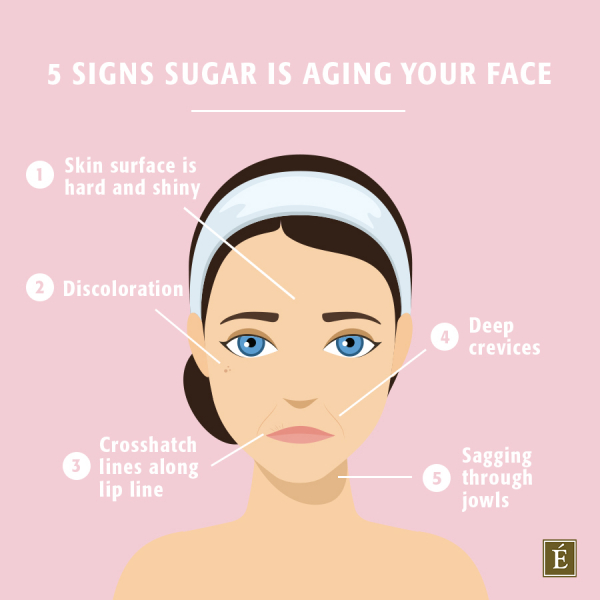
7 Ways To Prevent Sugar Damage On The Skin
The good news is that you're never too late to prevent the visible signs of aging. Now that you know how sugar can damage your skin, here’s how you can combat the destruction and look your best:
1. Cut Back on Sugar
It can be difficult to completely eliminate sugar from your diet, but there are a few ways to cut back. Prevention advises keeping added sugar to no more than 10% of your daily calorie intake and steering clear of “hidden sugars” like barley malt, fruit juice concentrate and maple syrup. The worst of the bunch: High fructose corn syrup. This type of sugar, found in soft drinks, sweetened fruit drinks and many packaged foods, produces the most AGEs.
2. Increase Water Intake
Drinking water doesn’t directly impact your skin’s hydration but does help your body to carry out the key functions that support healthy skin more effectively. Water is essential to the production of collagen and elastin, and keeping your body hydrated can improve its ability to counteract the aging effects of glycation. Drink plenty of water and incorporate water-rich foods like cucumber, tomatoes and watermelon into your diet to maintain hydration.
3. Supplement Your Diet
A number of published studies cite Vitamins B1 and B6 as AGE inhibitors. Vitamin B1 (thiamin) can be found in green peas, sesame seeds and spinach, and has powerful antioxidant properties that help in the fight against free radicals. Vitamin B6 (pyridoxine), which is essential for skin development and maintenance, can be found in chickpeas, pinto beans and sunflower seeds.
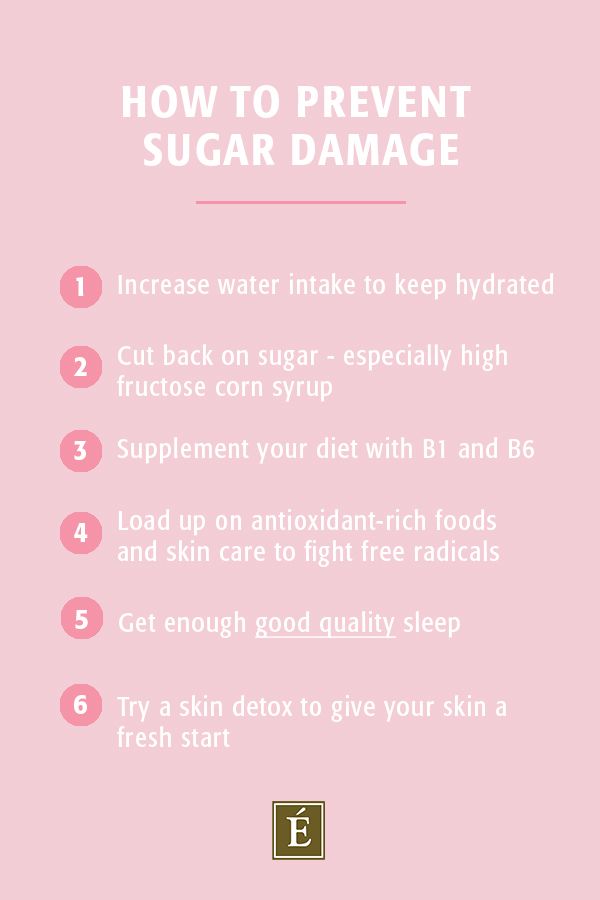
4. Load up on Antioxidants
Antioxidants neutralize and protect the body from the damaging effects of free radicals. These naturally occurring vitamins and minerals throw a wrench in glycation by preventing sugar from attaching to proteins. Your body produces antioxidants naturally, but you can also find them in everyday foods like berries, leafy greens and coffee. You can even find them in your skin care. Look for products that contain vitamins C and E which help collagen and elastin hold their shape and maintain their strength for your skin.
5. Sleep
One of our best beauty secrets is to get enough sleep. While you’re sleeping, your skin goes into overdrive, regenerating and repairing any damage done during the day. Studies show that lack of sleep contributes to more fine lines and wrinkles, uneven skin tone and less elasticity. But, it comes down to more than the quantity of sleep; just as important is quality. Your body does the most work during deep sleep to counteract the aging effects of sugar and other stressors.
6. Try a Skin Detox
A skin detox is another way to mitigate the damage done by glycation. Our Eminence Organics Product Support Team explain that “the benefit of detoxifying the skin is that it allows the skin a fresh start. Detox stimulates a healthier environment for the skin and can encourage increased production of collagen and elastin. These changes can help increase cell turnover and improve the skin barrier overall.”
7. Adopt a Skin Care Routine
We may be hinting at cutting out the sugar, but there’s nothing wrong with using deliciously sweet and delectable products on your skin. One dessert delight is the Chocolate Mousse Hydration Masque. Rich in cocoa aromas, this mask will remind you of a decadent chocolate treat. For cleansing, the Firm Skin Acai Masque provides a fruitilicious treat for the skin and a concentrated boost of vitamins and nutrient-rich ingredients that help your skin appear refreshed and revitalized.
If you’re concerned with dry lips or fine lines around the mouth, the Rosehip & Lemongrass Lip Balm SPF 15 is a hydrating lip balm that contains zinc oxide, rosehip oil, lavender and SPF protection. This delicious formula keeps your pucker looking plump and perfect.
The Strawberry Rhubarb Dermafoliant provides your face with some gentle exfoliation for a bright and radiant looking complexion. Rice flour absorbs oil while lactic and salicylic acids remove dead skin cells, and strawberries and rhubarb infuse the skin with antioxidants. Who can resist a little indulgence every now and again?
Have you tried any of these skin care products to prevent the signs of aging caused by sugar? We’d love to hear from you! Share your thoughts with us in the comments below and follow us on social media to join the conversation.

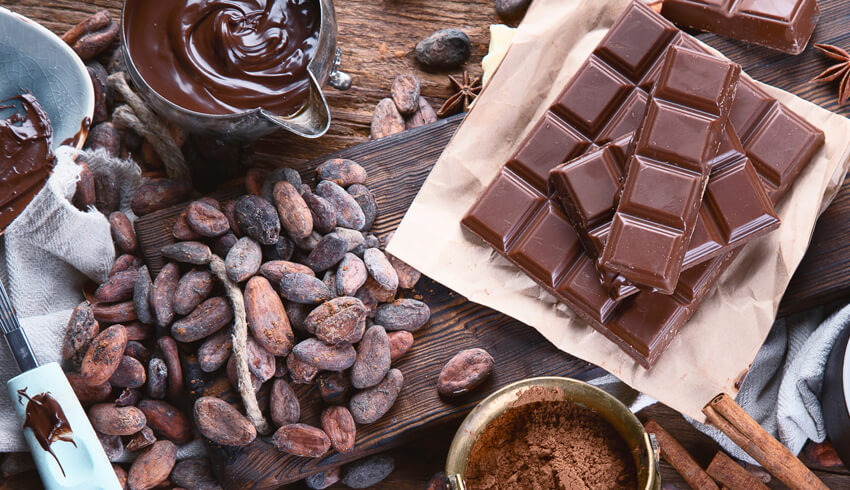
.jpg)
